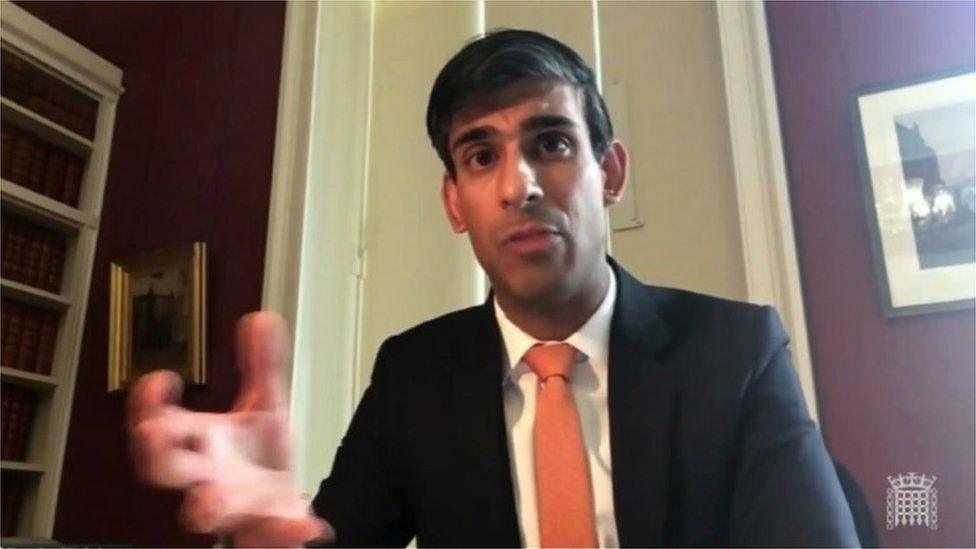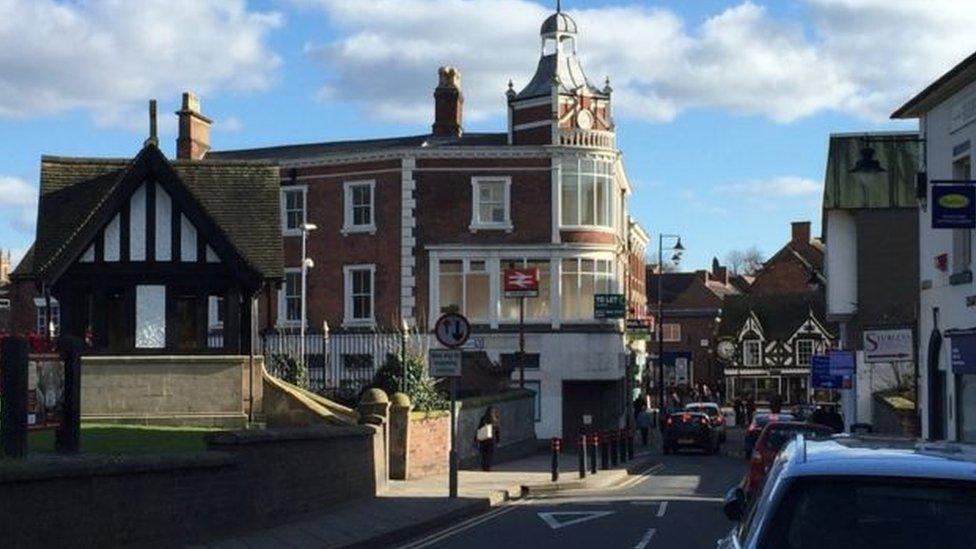Chancellor promises double-digit unemployment
- Published

Rishi Sunak warns of a recession on a scale we have not seen before
Politician to keep promise: Shock!
It comes to something when we know the one big promise we can trust a top politician to keep is a recession "on a scale we have not seen before" and "double-digit unemployment".
The Chancellor, Rishi Sunak, goes on to warn us there can be no guarantee of the longed-for "V-shaped" recovery. There's even talk among some commentators of an "L-shaped" recovery: in other words, no recovery at all.
Mr Sunak's stark message comes as the Office for National Statistics (ONS) releases figures for April, the first full month of the lockdown, showing a sharp rise in the number of people unemployed and claiming benefit, prompting expectations next month's figures will show a far bigger jump towards a different order of magnitude altogether.
You would have thought "unemployment soaring" would have been a safe conclusion for the headline writers to draw from all this.

Young people will be among the hardest to be hit economically
We all know it's true, not least because initial hopes the government's furlough scheme for employers to keep jobs alive at taxpayers' expense are now giving way to a weary resignation that in many cases it is merely delaying the inevitable. That there may even be no employer for those unfortunate people to go back to.
But not so fast!
"No, you can't say the ONS numbers show unemployment is rising", counter the purists who point out it is the claimant count that has gone up, largely because of people who are now eligible for benefits due to the CV19 crisis who previously were not.
What's more, the ONS's own figures show the UK unemployment rate actually fell from 4% in the last quarter of last year to 3.9% during the first quarter of this. Two hundred and eleven thousand more people were employed during Q1 2020 compared with Q4 2019.
So that simple headline "unemployment soaring" could be considered technically inaccurate. Even though we all know how painfully true it is.
Who was it who coined the phrase "Lies, damned lies and statistics"? There's even an argument about that. Was it the Nineteenth Century Conservative Prime Minister Benjamin Disraeli or his successor during the early years of the Twentieth, Arthur Balfour?
Who will be hardest-hit?
Ample evidence indicates that, as in the last major crisis following the financial crash, it will be people on lower earnings who will again suffer the worst of this. Also, depressingly, younger people along with older workers in their 50s and 60s. Switching to a geographical focus, the West Midlands Mayor, Andy Street, is worried that our industrial heartlands, always especially exposed to economic ups and downs, will face the biggest rebuilding job.
This is why he plans to head a West Midlands Economic Recovery Board with mounting speculation the government may be about to sign off on some form of ministerial participation in it. Mr Street may draw at least a crumb of comfort from some number-crunching by the campaigning organisation the Centre for Cities (CfC). While the ONS were compiling their claimants' statistics, the CfC were updating their absolute unemployment numbers for our cities and towns.
You can see the CfC chart by clicking here., external
Telford in Shropshire heads our contingent in ninth place. Then you have to go down as far as 21st for Birmingham, 42nd for Gloucester, 45th for Stoke-on-Trent and 56th for Coventry, with these last two registering percentage point increases between March and April below the UK average of 2%.

Telford has the largest rise in benefit claims in the West Midlands
Every one of these numbers carries a heavy human toll of course. But they also provide some overdue perspective suggesting where our part of the country stands in the over all scheme of things.
No wonder the pressure is building on ministers to respond to the collateral effects of the government-imposed Covid lockdown. Worried about the effects on other patients suffering from, say, heart conditions or cancer, one hospital doctor told me recently "we're buying lives with lives".
We are also buying lives with jobs.
When Boris Johnson quoted his classical hero Cicero to declare "life comes first", he could present it as a simple black and white political question. It's in the looming grey zone that the trouble starts.
